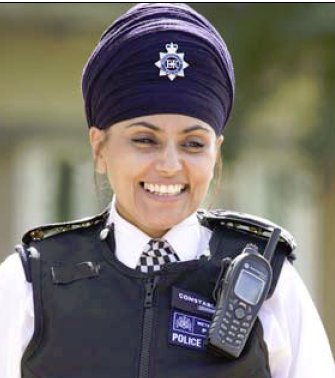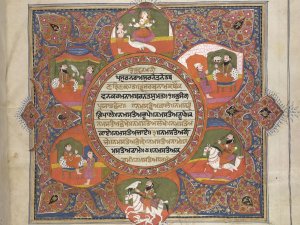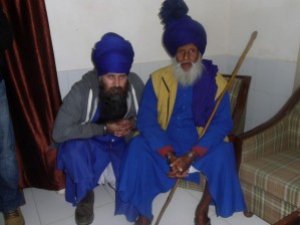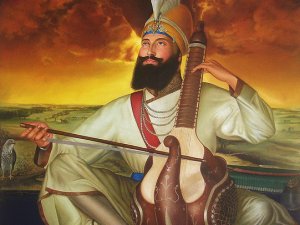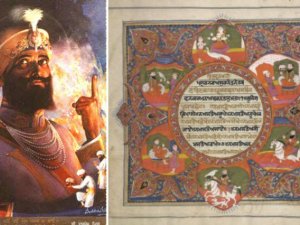| Build a special future Metropolitan Police special constables: Volunteer as a special constable and help make our city safer By WILLIAM EVERETT |
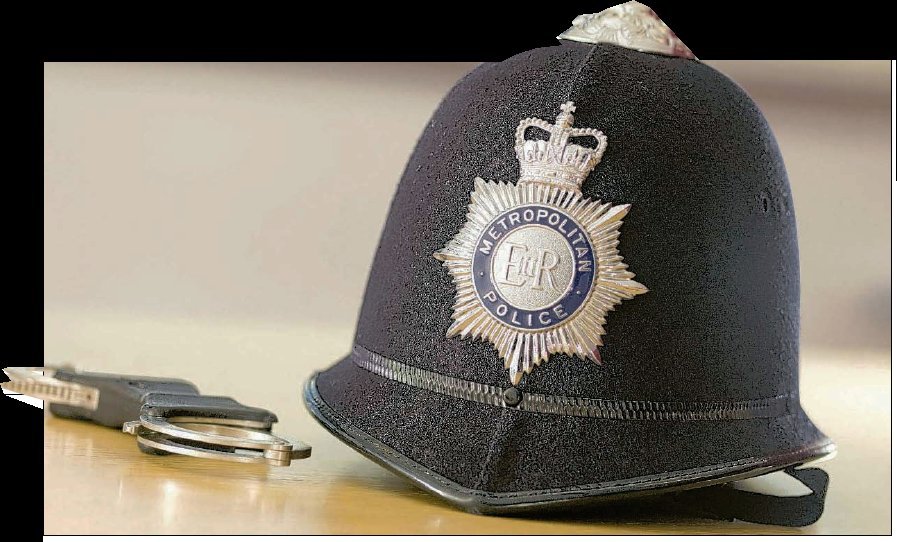 |
 esponding to
999 calls, giving
evidence in
court, tackling
crime on the
streets – these
are just some of the duties
carried out by volunteer police
officers for the Metropolitan
Police Service and if you can
spare just 16 hours a month,
you could join them. esponding to
999 calls, giving
evidence in
court, tackling
crime on the
streets – these
are just some of the duties
carried out by volunteer police
officers for the Metropolitan
Police Service and if you can
spare just 16 hours a month,
you could join them.If you like to spend every evening on the sofa, this isn’t for you. But if you feel you have a bit more to offer in your spare time, volunteering as a special constable could be the most rewarding decision you ever make. Special constables wear the same uniform as regular police officers and have the same powers and responsibilities, including powers of arrest. They enjoy the challenge and variety of police work while serving their community and building a wealth of careerboosting skills. As a special constable, you’ll work alongside regular officers, doing everything from foot and vehicle patrols to policing public events and taking part in crime ‘hotspot’ operations. And at the end of each shift, you’ll know you’ve helped make London a safer place. Don’t worry if you don’t know your tangos from your foxtrots. When you become a special constable you’ll receive extensive training, with an initial foundation |
course followed by 18 months of advanced training and 60 hours of coached patrol. After that, you’ll receive ongoing training throughout your service, ensuring your skills and knowledge are at the forefront of modern policing. And if you’re concerned about the risks involved, the Metropolitan Police Service treats safety as a top priority. Officer safety training includes self defence and all special constables wear a full police officer uniform with a helmet, body armour, handcuffs, radio and additional Officer Safety Equipment. So whether you’re assisting at a road accident, serving a warrant or diffusing a tense situation, you’ll be equipped to do it in the safest possible way. While you won’t receive any financial rewards for your time, special constables do benefit from free travel on London’s Tubes, buses, DLR, Croydon Tramlink and TFL-operated London Overground services, both on and off duty. The training and duties will also provide you with countless personal rewards. Volunteering as a special constable will sharpen your skills in problem solving, negotiating, decision making, team working, communication and coping under pressure, all of which will build your self-confidence, enrich your daily life and help advance your full-time career. Working as part of a closeknit team, special constables also enjoy a solid support network and often form friendships that last a lifetime. You will be serving your community, facing new challenges every day and providing a vital link between the police and the people of London. For self-satisfaction, not many roles can beat that. |
|
| |
| > Case study
| |
Public Sector Recruitment Volunteers' Week, which runs until June 7, celebrates the fantastic contribution that millions of volunteers make to society. Among them are Metropolitan Police Specials like Raj Birk, who tells Niki Chesworth why she gives her time to give something backA busy working mother of four is probably the last person you would expect to volunteer her time to patrol the streets of London as a special constable. However, for Raj Birk it has proved to be the most rewarding thing she has ever done. "I really look forward to it," she says. "I actually cannot wait to get out there. I love meeting people and I love the response I get. I am a Sikh and we thrive on serving our community, so for me this is all part of giving something back and helping other people."
Wearing her turban and an almost
permanent smile, Raj has become a
well-known face in Redbridge, where
she is part of the community. Raj, who has been working for the Met for the past 17 years and is currently an intelligence researcher, is allowed to use 16 hours during her working month to volunteer as a Special but says the hours are something that anyone can fit round work, families, friends and holidays . even if, like her, they have four children. "The only thing I regret is that I didn't do it sooner," adds Raj. "I volunteered because I wanted to give something back, but I have also gained so much too. Being a Special is teaching me a lot of valuable life skills, it is making me more confident and it teaches you to think outside the box. Working nine-to- five or eight-to-four becomes a routine, but when I am a Special every day is different." Being a Metropolitan Special Constable
gives volunteers the same powers
and uniform as a regular police officer.
All that is required is giving up at least
16 hours of their spare time a month to
do something positive for themselves
and the community. Special constables
are involved in all aspects of policing
London, which means they can be
called on to help safeguard public
safety and security at local or major
events, to serve warrants and also to
assist in the event of accidents, fights
and fires. "I have never felt vulnerable once,"
she says. "Putting on the uniform gives
you a sense of security but I don't ever
feel threatened. The uniform is what
you are representing, but the fact that
you look welcoming and are not intimidating
means that you get a good
response. That is why Specials are so
important . we often come from the
community and so we can provide a
vital link with local people." While Specials do not receive any financial rewards for their time, they do benefit from free travel on London's tubes, buses, DLR, Croydon Tramlink and TFL-operated London Overground services, both on and off duty. In return they can expect to enjoy a variety of police work, experiencing new and different challenges and working as part of a close-knit team. Specials also develop transferable skills such as problem solving, negotiating, decision making, team working, communication skills and coping under pressure. It usually ensures that they benefit from their time as a special constable as much as the community they serve. In fact Raj has been so positive since she first volunteered as a special constable last autumn, that she has inspired her eldest daughter to become one, too. My daughter, Jaspreet, is in her final
year at university and is putting her
language skills . Spanish, French, English,
Hindi and Punjabi . to good use
volunteering as a special in Westminster
where there are so many tourists,h
says proud mum Raj. | |
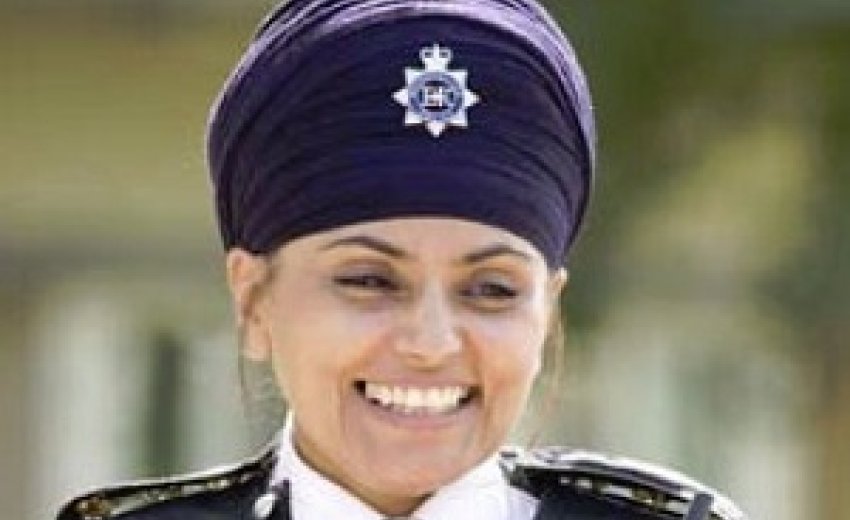

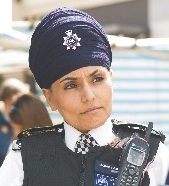 Mother of four Raj Birk is
a special constable in the
borough of Redbridge. She
fits volunteering for the
Metropolitan Police Service
around her family life and a
full-time job as an intelligence
researcher.
Mother of four Raj Birk is
a special constable in the
borough of Redbridge. She
fits volunteering for the
Metropolitan Police Service
around her family life and a
full-time job as an intelligence
researcher.